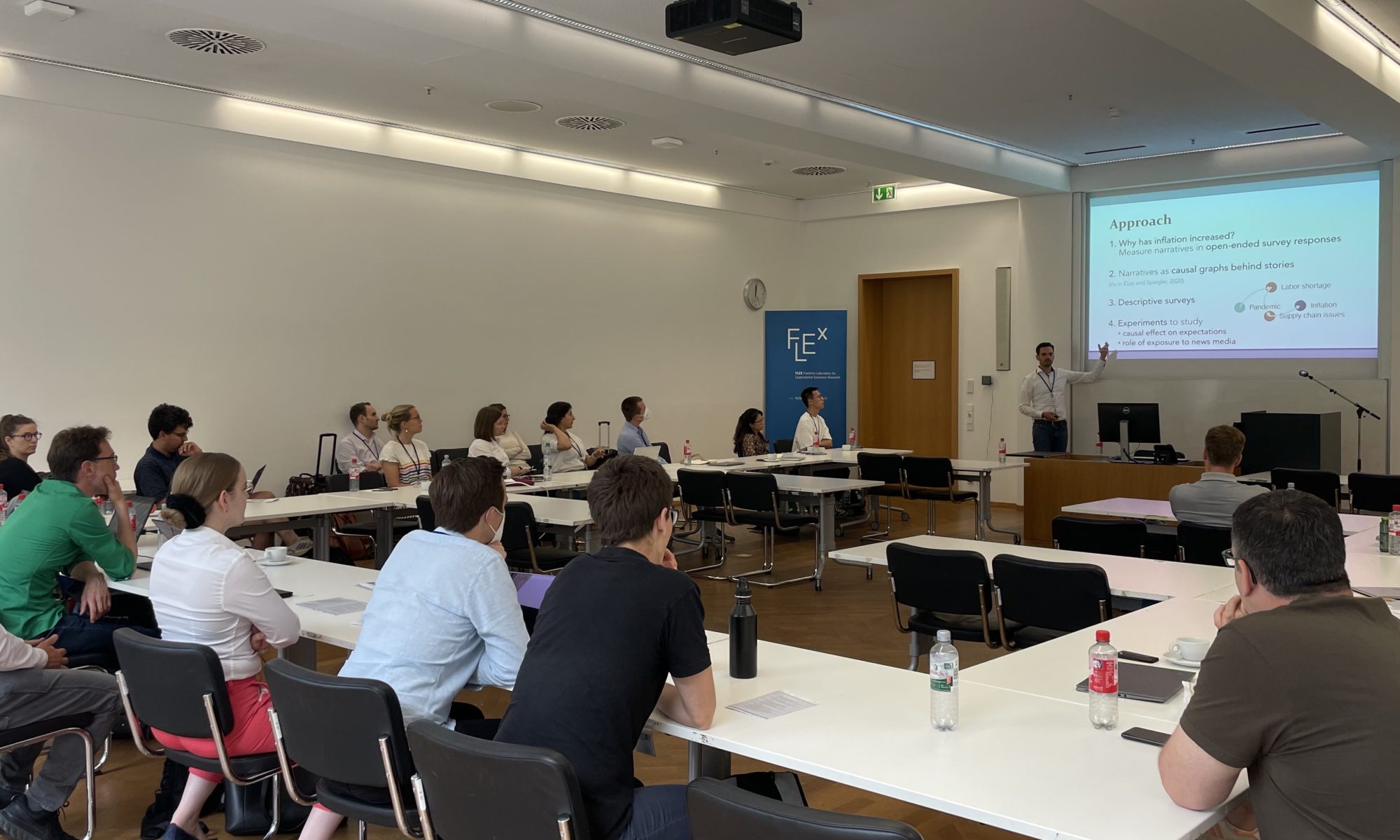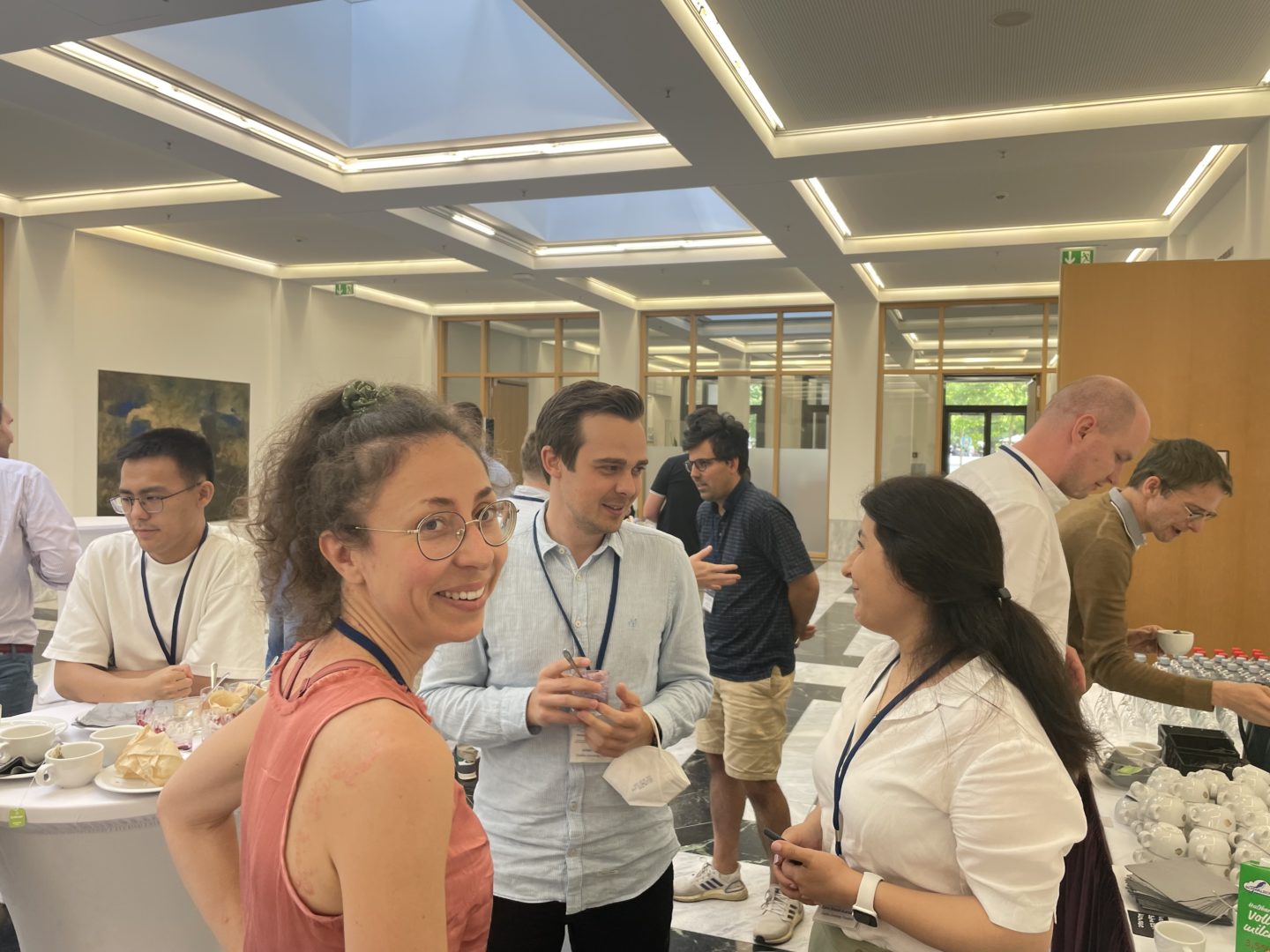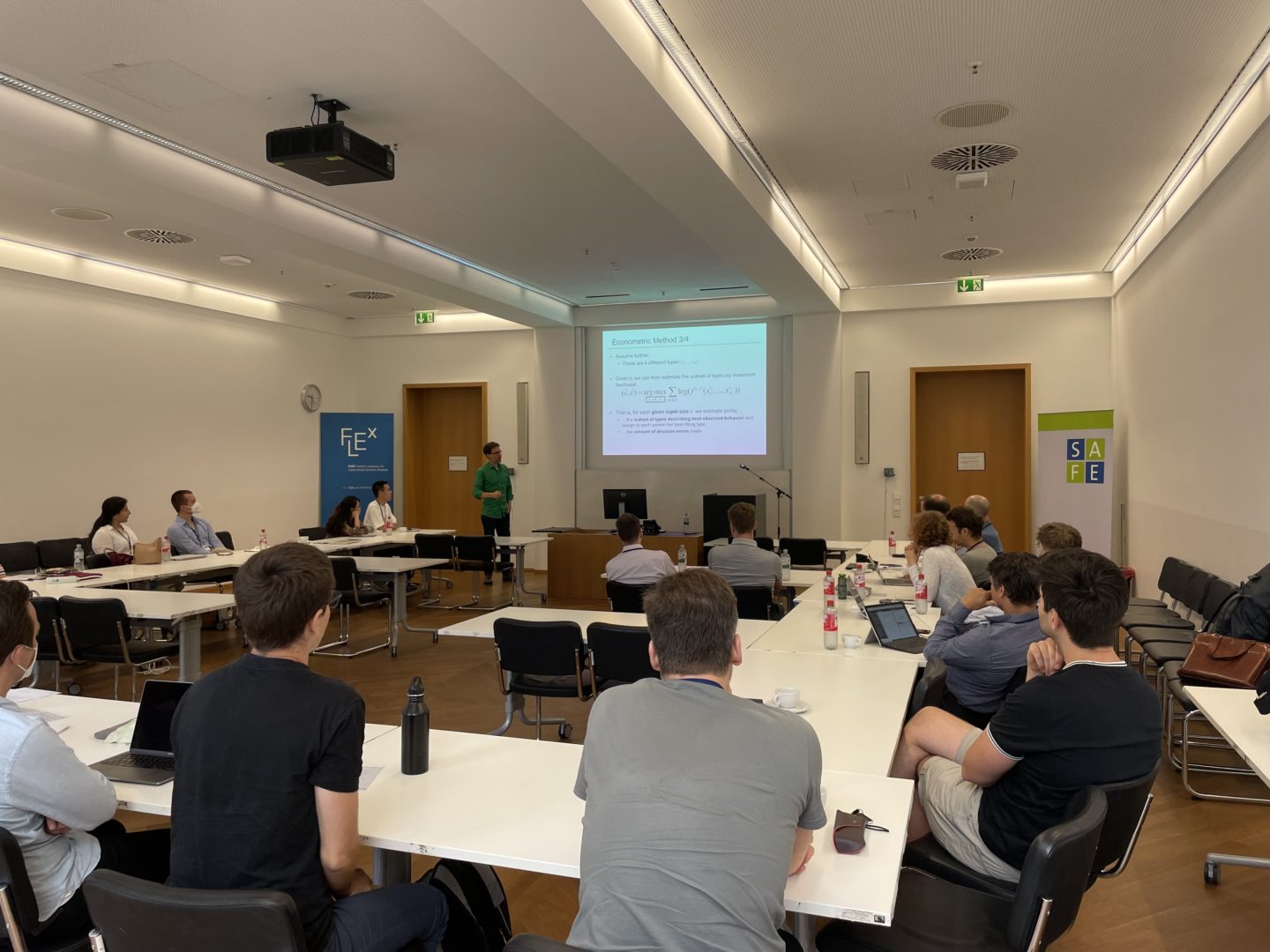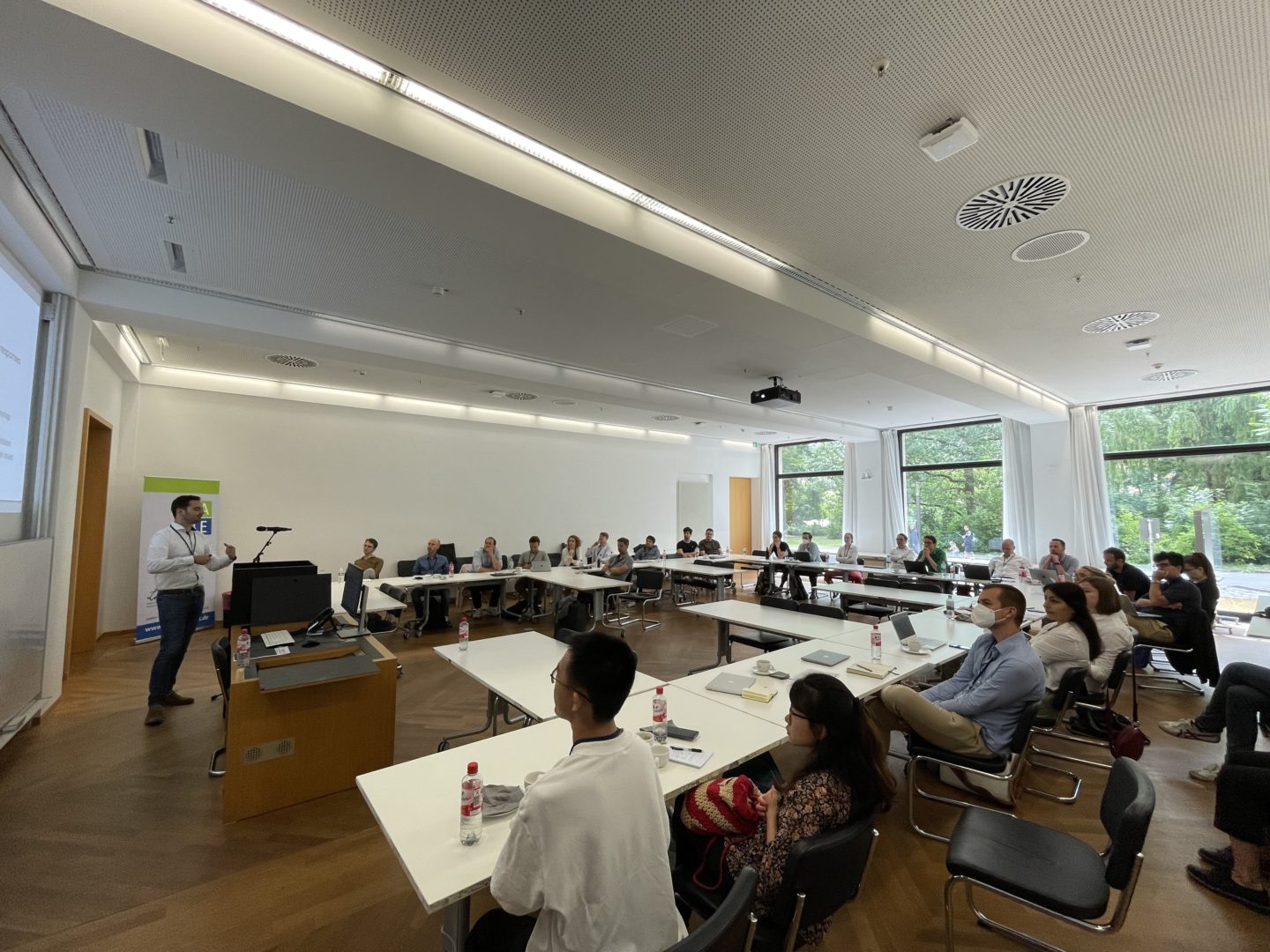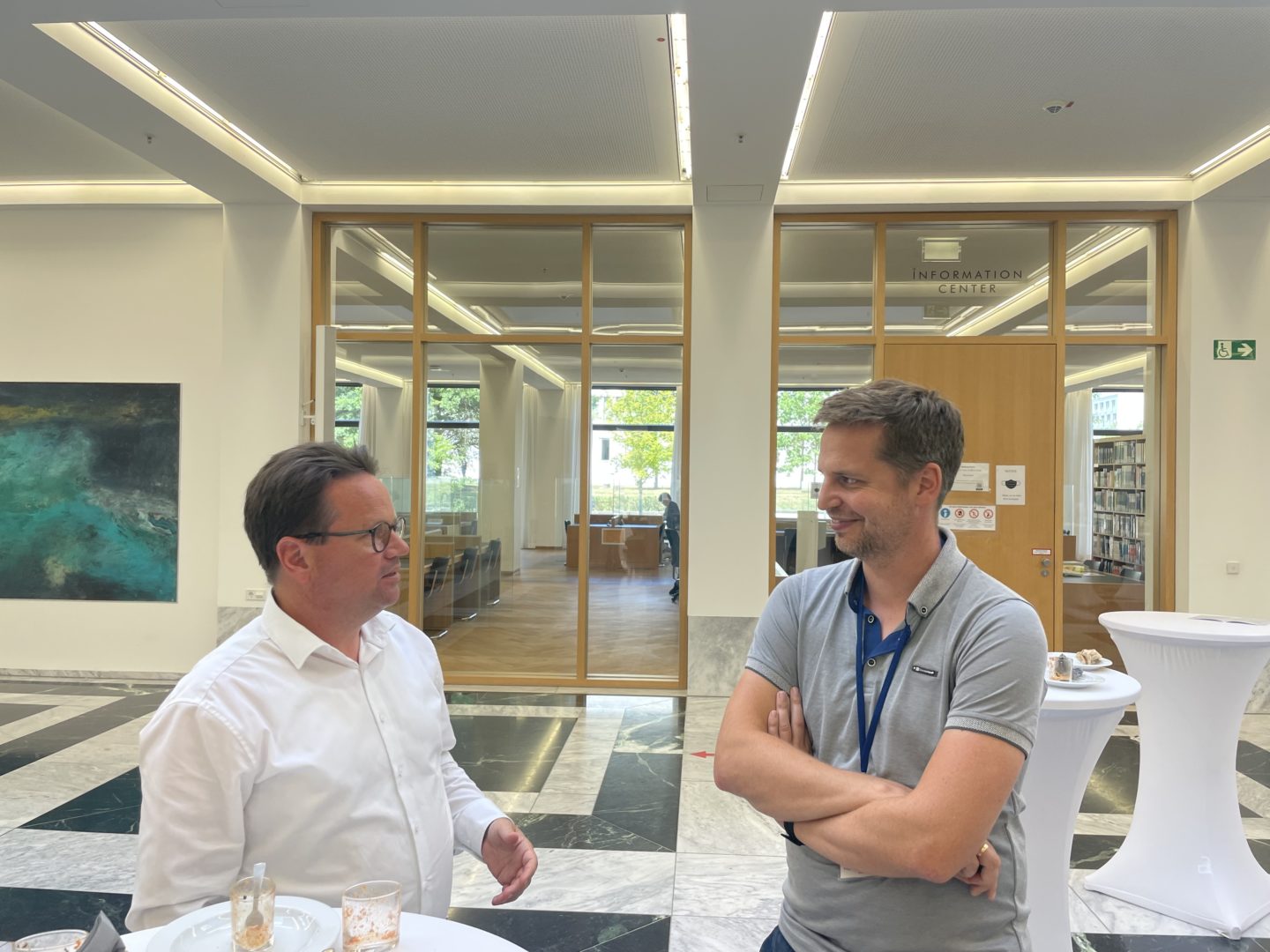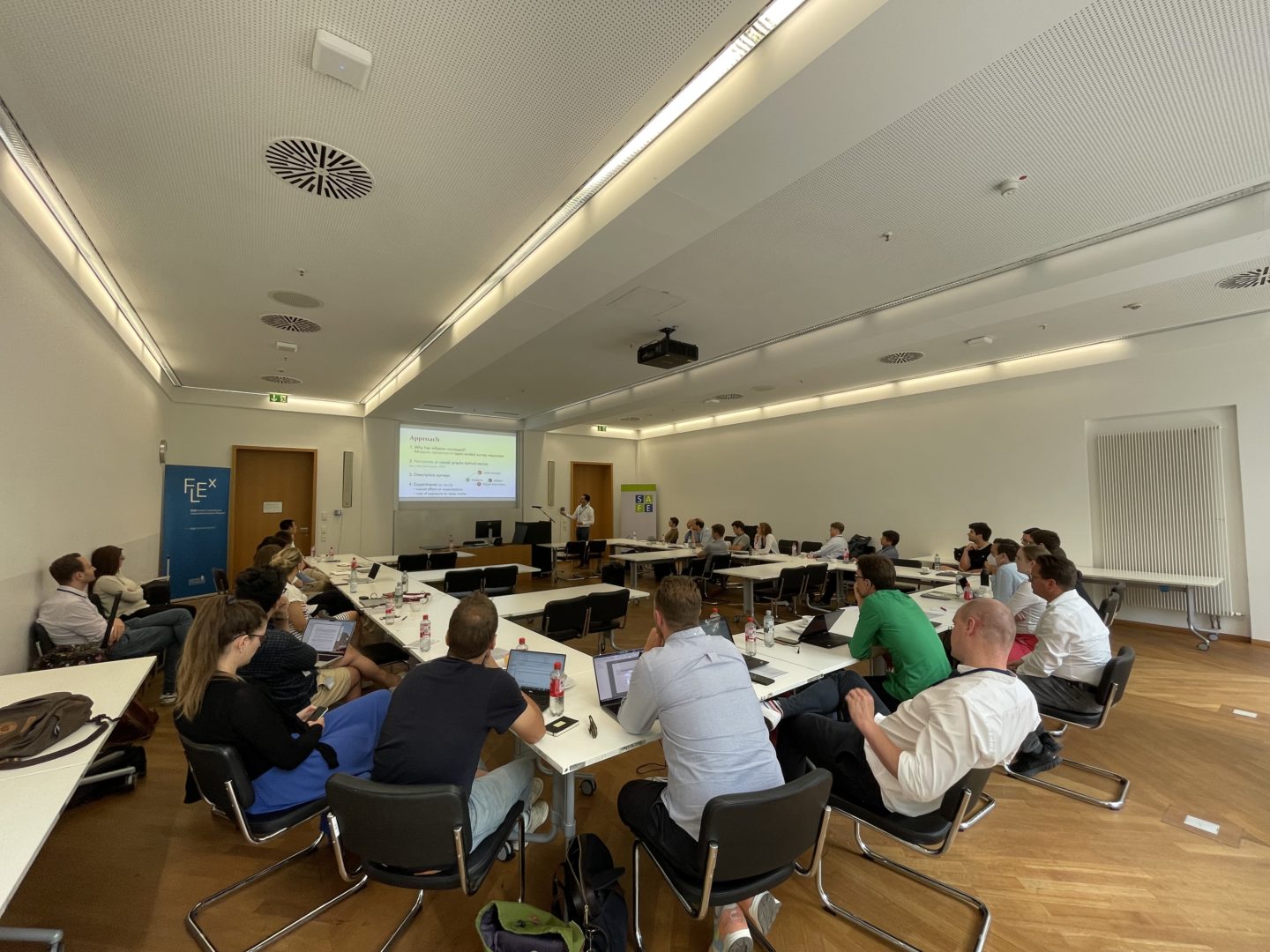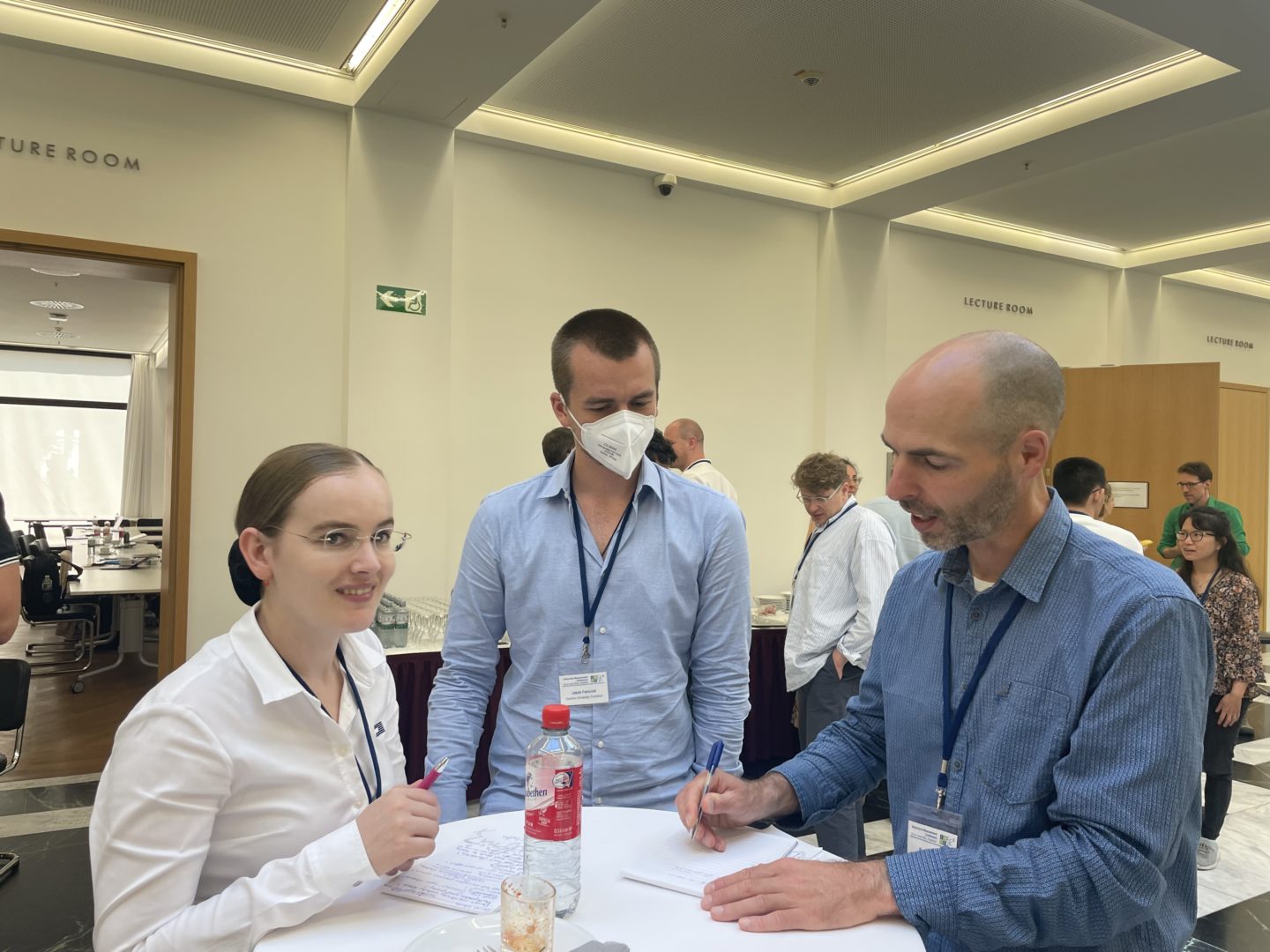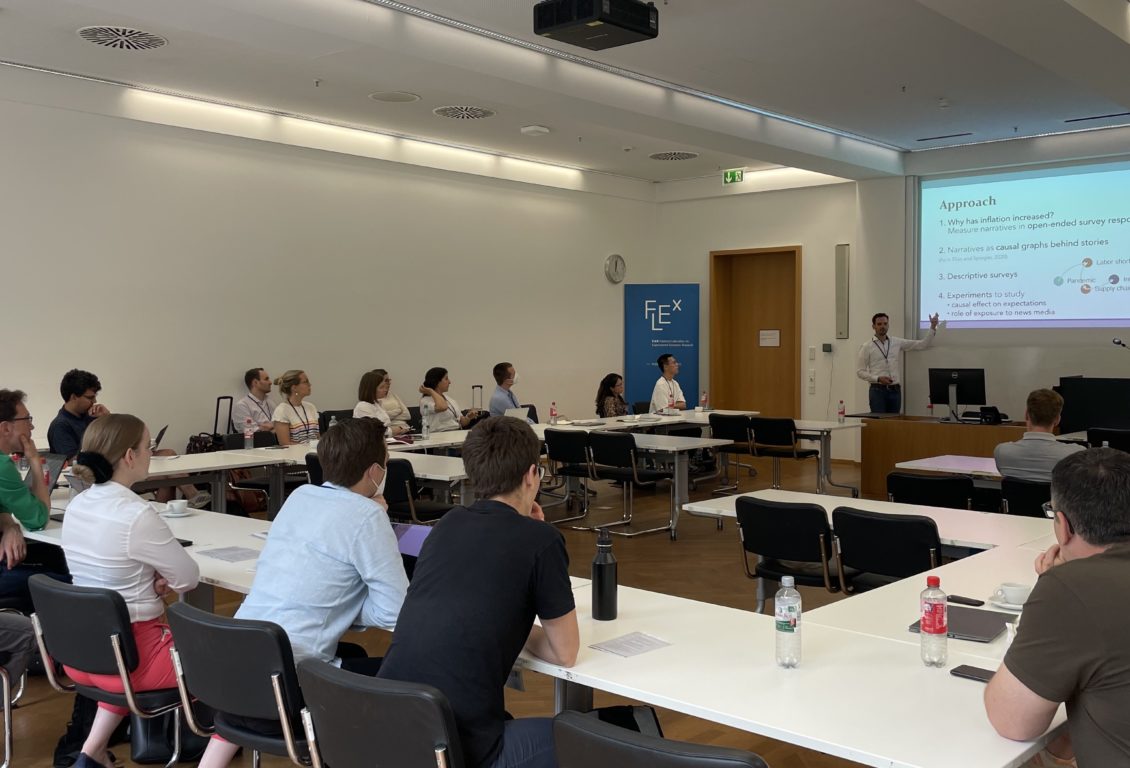
On June 23 – 24, 2022 FLEX together with the Leibniz Institute SAFE hosted the first bi-annual Behavioral Measurement Conference at Goethe University. The aim is to foster and advance economic research utilizing behavioral measurement tools.
Precise measurement is a hallmark of empirical scientific practice. Going back to the intellectual tradition of the revealed preference paradigm, empirical economic research is classically characterized by its strong emphasis of choice-based, behavioral approaches and corresponding measurement protocols. Even though the range of measured characteristics (preferences, beliefs, behavioral biases, etc.) and features of implementation have evolved in the past years, the standardization of measurement protocols is at its beginning and there is little systematic comparative data, e.g., to validate these measurements in practice. In addition, the emergence of new types of data (e.g., data on decision processes) also requires a review and further development of the conceptual foundations of behavioral measurement.
Conference speakers were Thomas Dohmen (University of Bonn), Markus Eyting (Johannes Gutenberg University Mainz), Florian Hett (Johannes Gutenberg University Mainz), Christine Laudenbach (Goethe University Frankfurt ), Julian Detemple (Goethe University Frankfurt), Yan Chen (University of Michigan), Charles Sprenger (California Institute of Technology), Daniel Schunk ( Johannes Gutenberg University Mainz), Zahra Sharafi-Avarzaman (Goethe University Frankfurt), Bart Golsteyn (Maastricht University), Johannes Wohlfart (University of Copenhagen), Holger Herz (University of Fribourg), Sebastian Ebert (University of Heidelberg) and David Poensgen (Goethe University Frankfurt).
The conference has been organized by Michael Kosfeld (Goethe University) and Florian Hett (Johannes Gutenberg University Mainz).
Impressions:
More information about the conference program is available here.
